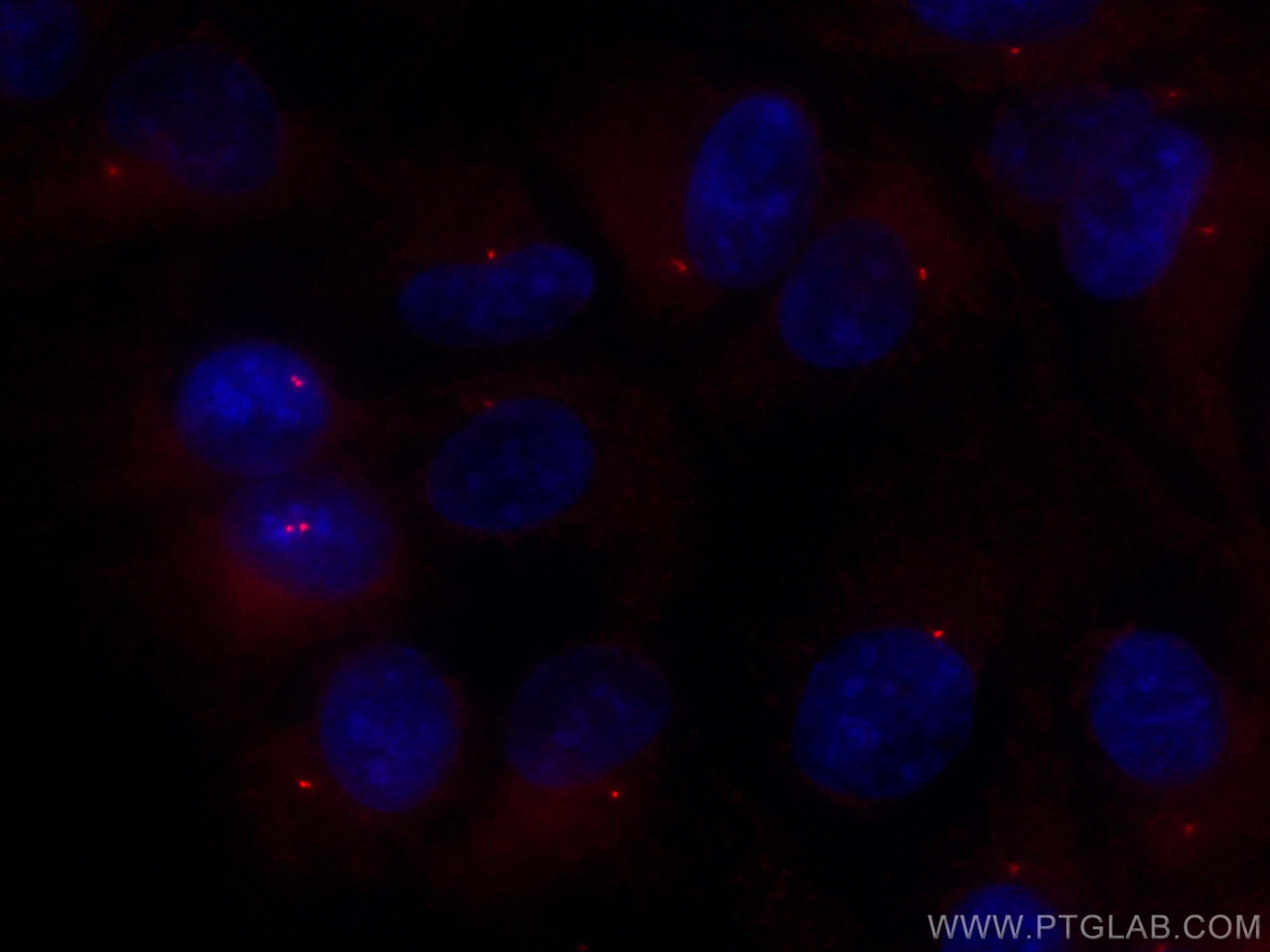Tested Applications
| Positive IF/ICC detected in | hTERT-RPE1 cells |
Recommended dilution
| Application | Dilution |
|---|---|
| Immunofluorescence (IF)/ICC | IF/ICC : 1:50-1:500 |
| It is recommended that this reagent should be titrated in each testing system to obtain optimal results. | |
| Sample-dependent, Check data in validation data gallery. | |
Product Information
CL594-16268 targets CEP63 in IF/ICC applications and shows reactivity with human, mouse, rat, Canine samples.
| Tested Reactivity | human, mouse, rat, Canine |
| Host / Isotype | Rabbit / IgG |
| Class | Polyclonal |
| Type | Antibody |
| Immunogen |
CatNo: Ag9335 Product name: Recombinant human CEP63 protein Source: e coli.-derived, PGEX-4T Tag: GST Domain: 1-349 aa of BC014050 Sequence: MEALLEGIQNRGHGGGFLTSCEAELQELMKQIDIMVAHKKSEWEGRTHALETCLKIREQELKSLRSQLDVTHKEVGMLHQQVEEHEKIKQEMTMEYKQELKKLHEELCILKRSYEKLQKKQMREFRGNTKNHREDRSEIERLTAKIEEFRQKSLDWEKQRLIYQQQVSSLEAQRKALAEQSEIIQAQLVNRKQKLESVELSSQSEIQHLSSKLERANDTICANELEIERLTMRVNDLVGTSMTVLQEQQQKEEKLRESEKLLEALQEEKRELKAALQSQENLIHEARIQKEKLQEKVKATNTQHAVEAISLESVSATCKQLSQELMEKYEELKRMEAHNNEYKAEIKKL Predict reactive species |
| Full Name | centrosomal protein 63kDa |
| Calculated Molecular Weight | 703 aa, 81 kDa |
| Observed Molecular Weight | 57-75 kDa |
| GenBank Accession Number | BC014050 |
| Gene Symbol | CEP63 |
| Gene ID (NCBI) | 80254 |
| RRID | AB_2919829 |
| Conjugate | CoraLite®594 Fluorescent Dye |
| Excitation/Emission Maxima Wavelengths | 588 nm / 604 nm |
| Form | Liquid |
| Purification Method | Antigen affinity purification |
| UNIPROT ID | Q96MT8 |
| Storage Buffer | PBS with 50% glycerol, 0.05% Proclin300, 0.5% BSA, pH 7.3. |
| Storage Conditions | Store at -20°C. Avoid exposure to light. Stable for one year after shipment. Aliquoting is unnecessary for -20oC storage. |
Background Information
CEP63 is a 63 kDa centrosomal protein. It is required for normal spindle assembly. It maintains centrosome numbers through centrosomal recruitment of CEP152. CEP63 recruits CDK1 to centrosomes. It plays a role in DNA damage response. This antibody can recognize all the four isoforms of CEP63 (56 kDa, 58 kDa, 63 kDa and 81 kDa).
Protocols
| Product Specific Protocols | |
|---|---|
| IF protocol for CL594 CEP63 antibody CL594-16268 | Download protocol |
| Standard Protocols | |
|---|---|
| Click here to view our Standard Protocols |




